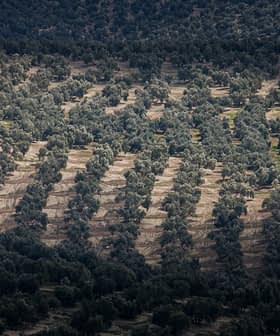The regional government of Andalusia, Spain’s largest olive growing region, is partnering with rural development groups to promote the growth of olive oil tourism in a push to diversify the local economy.
Tourism initiatives based around the culture of olive growing, such as guided visits to olive groves and mills as well as tastings and introductions to local gastronomy, will be among the projects to receive €1.4 million in funding, the Andalusian Ministry of Agriculture, Livestock, Fisheries and Sustainable Development announced.
See Also:Olive Oil Tourism Returns to the Colosseum as Italy ReopensThough the southern Spanish region is the world’s largest producer and exporter of olive oil, it is facing a decline in the number of olive growers due to a lack of profitability and demographic shift away from rural areas to cities.
Some 22 percent of olive groves in the region are non-mechanizable, meaning they must be harvested manually due to the steep incline of the land. This laborious and expensive process has led to the abandonment of more than 130,000 hectares of olive groves, according to a study from the Spanish Association of Olive Municipalities.
A separate study from Deoleo found that another 500,000 hectares are at risk of the same fate over the next 10 years.
In response to the challenges, the regional government is seeking to diversify the economic opportunities available in the region by creating “olive oil tourism experiences.”
The recently announced package will also include funding for the production of organic extra virgin olive oils, measures to protect biodiversity and climate change adaptation strategies as well as promoting the participation of more young people and women in the sector.
Another major boost to Andalusia’s olive oil tourism industry could be coming down the line if Spain succeeds in getting its ‘Sea of Olives’ landscape added to UNESCO’s World Heritage List. The Spanish Ministry of Culture will submit the candidacy of the unique landscape, composed of 66 million olive trees, covering 590,000 hectares in 2022, with the final decision in 2023.









